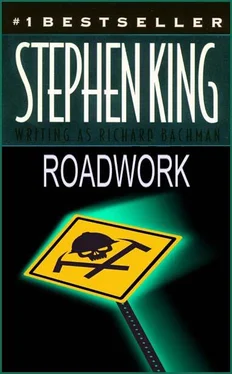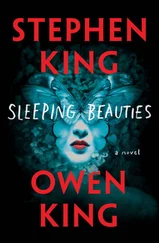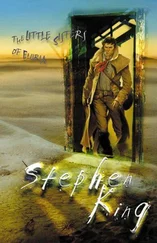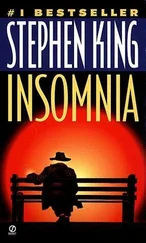Stephen King - Roadwork
Здесь есть возможность читать онлайн «Stephen King - Roadwork» весь текст электронной книги совершенно бесплатно (целиком полную версию без сокращений). В некоторых случаях можно слушать аудио, скачать через торрент в формате fb2 и присутствует краткое содержание. Год выпуска: 1981, Жанр: Ужасы и Мистика, на английском языке. Описание произведения, (предисловие) а так же отзывы посетителей доступны на портале библиотеки ЛибКат.
- Название:Roadwork
- Автор:
- Жанр:
- Год:1981
- ISBN:нет данных
- Рейтинг книги:4 / 5. Голосов: 1
-
Избранное:Добавить в избранное
- Отзывы:
-
Ваша оценка:
- 80
- 1
- 2
- 3
- 4
- 5
Roadwork: краткое содержание, описание и аннотация
Предлагаем к чтению аннотацию, описание, краткое содержание или предисловие (зависит от того, что написал сам автор книги «Roadwork»). Если вы не нашли необходимую информацию о книге — напишите в комментариях, мы постараемся отыскать её.
Roadwork — читать онлайн бесплатно полную книгу (весь текст) целиком
Ниже представлен текст книги, разбитый по страницам. Система сохранения места последней прочитанной страницы, позволяет с удобством читать онлайн бесплатно книгу «Roadwork», без необходимости каждый раз заново искать на чём Вы остановились. Поставьте закладку, и сможете в любой момент перейти на страницу, на которой закончили чтение.
Интервал:
Закладка:
Everyone looked back at their magazines. The kid with the broken arm swallowed audibly, producing a small click in the silence.
He got up and went out quickly, not looking back.
At the laundry everyone on the floor came over, and Ron Stone didn’t stop them.
I don’t know, he told them. I never found out if he was alive or dead. You’ll hear. I just don’t know.
He fled upstairs, feeling weird and disconnected.
“Do you know how Johnny is, Mr. Dawes?” Phyllis asked him. He noticed for the first time that Phyllis, jaunty blue-rinsed hair notwithstanding, was looking old.
“He’s bad,” he said. “The priest came to give him the last rites.”
“Oh, what a dirty shame. And so close to Christmas.”
“Did someone go out to Deakman to pick up his load?”
She looked at him a little reproachfully. “Tom sent out Harry Jones. He brought it in five minutes ago.”
“Good,” he said, but it wasn’t good. It was bad. He thought of going down to the washroom and dumping enough Hexlite into the washers to disintegrate all of it-when the extract ended and Pollack opened the machines there would be nothing but a pile of gray fluff. That would be good.
Phyllis had said something and he hadn’t heard.
“What? I’m sorry.”
“I said that Mr. Ordner called. He wants you to call back right away. And a fellow named Harold Swinnerton. He said the cartridges had come in.”
“Harold-?” And then he remembered. Harvey’s Gun Shop. Only Harvey, like Marley, was as dead as a doornail. “Yes, right.”
He went into his office and closed the door. The sign on his desk still said:
He took it off the desk and dropped it into the wastebasket. Chink.
He sat behind his desk, took everything out of the IN basket and threw it into the wastebasket without looking at it. He paused and looked around the office. The walls were wood-paneled. On the left were two framed degrees: one from college, one from the Laundry Institute, where he had gone during the summers of 1969 and 1970. Behind the desk was a large blow-up of himself shaking hands with Ray Tarkington in the Blue Ribbon parking lot just after it had been hot-topped. He and Ray were smiling. The laundry stood in the background, three trucks backed into the loading bay. The smokestack still looked very white.
He had been in this office since 1967, over six years. Since before Woodstock, before Kent State, before the assassination of Robert Kennedy and Martin Luther King, since before Nixon. Years of his life had been spent between these four walls. Millions of breaths, millions of heartbeats. He looked around, seeing if he felt anything. He felt faintly sad. That was all.
He cleaned out his desk, throwing away personal papers and his personal account books. He wrote his resignation on the back of a printed wash formula and slipped it into a laundry pay envelope. He left the impersonal things-the paper clips, the Scotch tape, the big book of checks, the pile of blank time cards held together with robber bands.
He got up, took the two degrees off the wall, and threw them into the wastebasket. The glass covering the Laundry Institute diploma shattered. The squares where the degrees had hung all these years were a little brighter than the rest of the wall, and that was all.
The phone rang and he picked it up, thinking it would be Ordner. But it was Ron Stone, calling from downstairs.
“ Bart?”
“Yeah.”
“Johnny passed away a half hour ago. I guess he never really had a chance.”
“I’m very sorry. I want to shut it down the rest of the day, Ron.”
Ron sighed. “That’s best, I guess. But won’t you catch hell from the big bosses?”
“I don’t work for the big bosses anymore. I just wrote my resignation.” There. It was out. That made it real.
A dead beat of silence on the other end. He could hear the washers and the steady thumping hiss of the ironer. The mangler, they called it, on account of what would happen to you if you ever got caught in it.-
“I must have heard you wrong,” Ron said finally. “I thought you said-”
“I said it, Ron. I’m through. It’s been a pleasure working with you and Tom and even Vinnie, when he could keep his mouth shut. But it’s over.”
“Hey, listen, Bart. Take it easy. I know this has got you upset-”
“It’s not over Johnny,” he said, not knowing if it was true or not. Maybe he still would have made an effort to save himself, to save the life that had existed under a protective dome of routine for the last twenty years. But when the priest had walked quickly past them down the hall, almost running, to the place where Johnny lay dying or dead, and when Arnie Walker had made that funny whining noise high up in his throat, he had given up. Like driving a car in a skid, or fooling yourself that you were driving, and then just taking your hands off the wheel and putting them over your eyes.
“It’s not over Johnny,” he repeated.
“Well, listen… listen…” Ron sounded very upset.
“Look, I’ll talk to you later, Ron,” he said, not knowing if he would or not. “Go on, have them punch out.”
“Okay. Okay, but-”
He hung up gently.
He took the phone book out of the drawer and looked in the yellow pages under GUNS. He dialed Harvey’s Gun Shop.
“Hello, Harvey’s.”
“This is Barton Dawes,” he said.
“Oh, right. Those shells came in late yesterday afternoon. I told you I’d have them in plenty of time for Christmas. Two hundred rounds.”
“Good. Listen, I’m going to be awfully busy this afternoon. Are you open tonight?”
“Open nights until nine right up to Christmas.”
“Okay. I’ll try to get in around eight. If not, tomorrow afternoon for sure.”
“Good enough. Listen, did you find out if it was Boca Rio?”
“Boca…” Oh, yes, Boca Rio, where his cousin Nick Adams would soon be hunting. “Boca Rio. Yeah, I think it was.”
“Jesus, I envy him. That was the best time I ever had in my life.”
“Shaky cease-fire holds,” he said. A sudden image came to him of Johnny Walker’s head mounted over Stephan Ordner’s electric log fireplace, with a small polished bronze plaque beneath, saying:
November 28, 1973
Bagged on the corner of Deakman
“What was that?” Harry Swinnerton asked, puzzled.
“I said, I envy him too,” he said, and closed his eyes. A wave of nausea raced through him. I’m cracking up, he thought. This is called cracking up.
“Oh. Well, I’ll see you, then.”
“Sure. Thanks again, Mr. Swinnerton.”
He hung up, opened his eyes, and looked around his denuded office again. He flicked the button on the intercom.
“Phyllis?”
“Yes, Mr. Dawes?”
“Johnny died. We’re going to shut it down.”
“I saw people leaving and thought he must have.” Phyllis sounded as if she might have been crying.
“See if you can get Mr. Ordner on the phone before you go, will you?”
“Surely.”
He swiveled around in his chair and looked out the window. A road grader, bright orange, was lumbering by with chains on its oversize wheels, lashing at the road. This is their fault, Freddy. All their fault. I was doing okay until those guys down at City Hall decided to rip up my life. I was doing fine, right, Freddy?
Freddy?
Fred?
The phone rang and he picked it up. “Dawes.”
“You’ve gone crazy,” Steve Ordner said flatly. “Right out of your mind.”
“What do you mean?”
“I mean that I personally called Mr. Monohan this morning at nine-thirty. The McAn people signed the papers on the Waterford plant at nine o’clock. Now what the fuck happened, Barton?”
Читать дальшеИнтервал:
Закладка:
Похожие книги на «Roadwork»
Представляем Вашему вниманию похожие книги на «Roadwork» списком для выбора. Мы отобрали схожую по названию и смыслу литературу в надежде предоставить читателям больше вариантов отыскать новые, интересные, ещё непрочитанные произведения.
Обсуждение, отзывы о книге «Roadwork» и просто собственные мнения читателей. Оставьте ваши комментарии, напишите, что Вы думаете о произведении, его смысле или главных героях. Укажите что конкретно понравилось, а что нет, и почему Вы так считаете.












